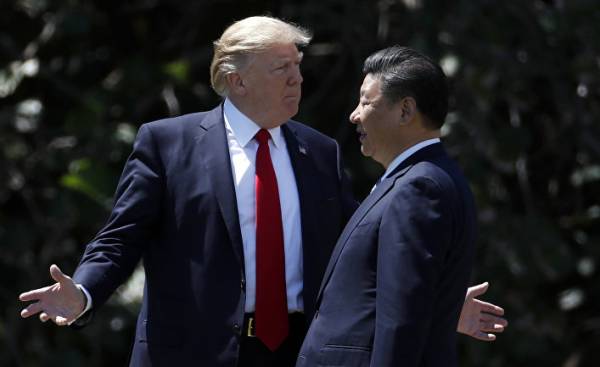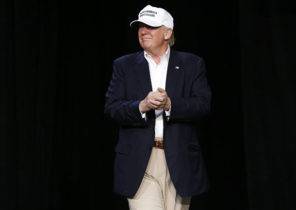
Three months ago, President Donald trump said warm words in the address of their Chinese counterparts President XI Jinping after the two leaders met in the resort of trump’s Mar-a-Lago in Florida. For several weeks the administration trump boasted early victories in negotiations with China, including enhanced access for U.S. beef and financial services, as well as assistance in trying to curb North Korea. Now both sides can barely agree how to describe their differences.
Negotiations on the economy in Washington failed on Wednesday, when the two superpowers were unable to make a joint statement. Trade Minister Wilbur Ross criticized China for its trade imbalance with the United States in his opening remarks, and then the two sides have canceled a planned final press conference. Later both parties made separate statements.
The Minister of Finance Steven Mnuchin and Ross said that China “recognized the reduction in the trade deficit of our common goal, to achieve that both parties will cooperate.” The Ministry of foreign Affairs of China made a reverse statement, saying that both sides agreed to begin “constructive cooperation” to reduce the trade deficit.
Trump has been campaigning to “protect the forgotten Americans, and establish the priority of America, but if it is impossible to return them their jobs, it is better to provide some sort of retribution, and that’s what’s happening here,” said Stephen Worlds, managing partner at research firm Beacon Policy Advisors (WA). This was the first meeting of senior officials in the economy, with trump administration, a ritual that began in 2008. This year a meeting called “a Comprehensive economic dialogue”, discussions were Mnuchin and Ross on the us side and Vice Premier Wang Yang from China.
Fed Chairman Janet Yellen took part in the negotiations, and the leaders, including Jack MA (Alibaba), and Stephen Schwarzman (Blackstone) was found on the sidelines. After last year’s forum, the two countries issued a statement (6589 words), which refers to mutual interest in the prosperity of both countries.
The document also included obligations. For example, China has pledged to cut overcapacity in the steel industry. It’s still a serious irritant, and the trump ponders whether to impose tariffs and quotas on steel imports. “The administration trump may have had unrealistic expectations about the actions of China to balance trade, said Shen Sangwan, chief economist for Asia at Mizuho Securities Asia Ltd. in Hong Kong. Now begins the real and serious negotiations”.
At the beginning of the speech on Wednesday, Ross complained about the trade deficit with China in unusually harsh terms. Although U.S. exports to China have grown in recent years, imports from Asian countries increased even faster, which resulted in a trade deficit of 309 billion dollars, said Ross. “If it was just a natural product of the forces of the free market, we would be able to understand it, but it is not, — said Ross. — So it’s time to reconsider our trade and investment relationship more just, equal and mutual manner.”
In his opening remarks, Wang said the cooperation “realistic choice” for both countries, adding his own view of how relations should develop, China and the US. “The dialogue can not immediately solve all the differences, but the confrontation will immediately harm the interests of both [countries],” said Wang, according to the state news Agency Xinhua.
Shortly thereafter, the Ministry of Finance sent an email to reporters in which it was reported that the United States canceled a press conference scheduled for the end of the day when Mnookin and Ross were to discuss the results of the meeting, from which they expected specific commitments of China.
The Treasury Department later sent a notice that China has also cancelled his media briefing. Although the confrontation with China over the trade deficit will reflect well on the political role of America, but it is not a good strategy for progress in relations with the Chinese leaders, who are also under political pressure at home, said David Levinger, managing Director of sovereign research for emerging markets TCW Group Inc.
USA succeeded, together with economic reformers who will resist the “powerful justified interests” in China, acting against opening up its economy, said Levinger, who played a leading role in the economic negotiations with the Chinese as the senior coordinator of the Treasury on the Affairs of China in the Obama administration. “In a sense, the strategy of the Teddy Roosevelt — soft speeches and clubs — effective with China, but in the case of administration, they make a lot of loud statements, but without further actions,” he said.







